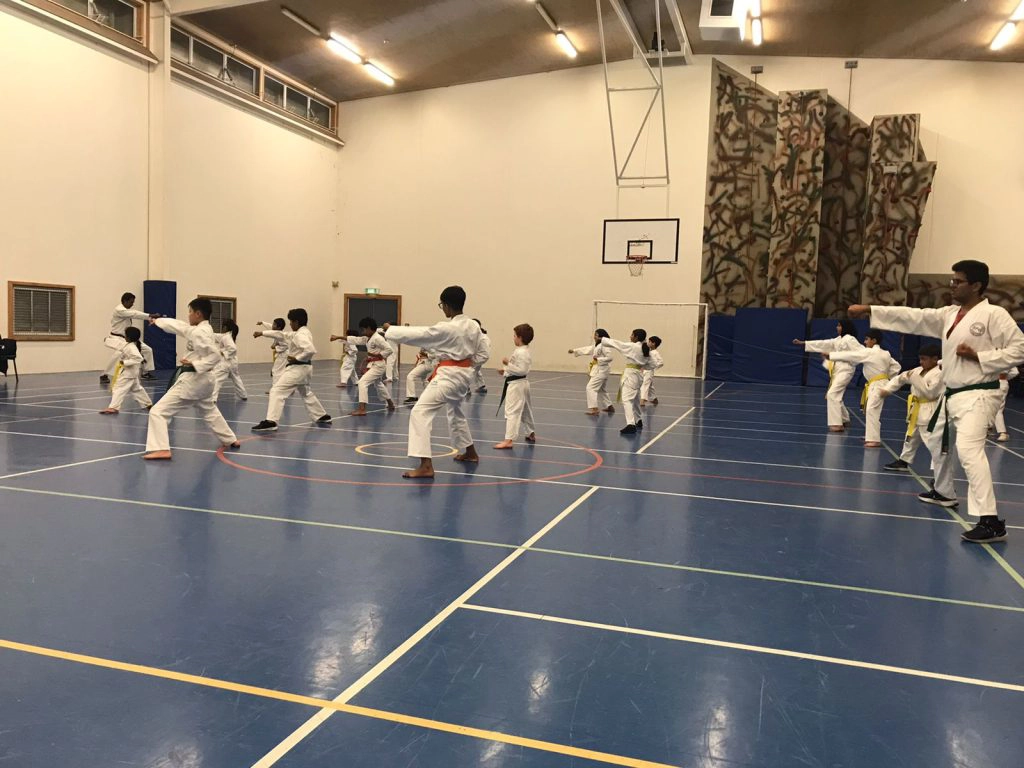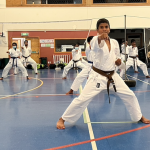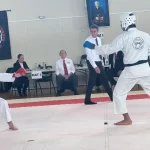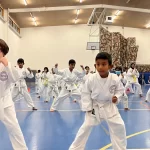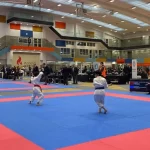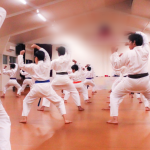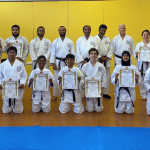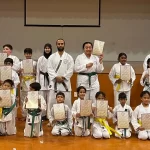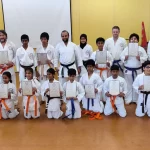Tips for choosing the best Martial Arts Near Me
15 tips for finding the best "martial arts near me."
Martial arts training can add purpose and excitement to your life. Choosing the right martial arts school is crucial to achieving your goals. Martial Arts is not a programme or a course – it is a lifestyle. A lifestyle that not only builds your social reach but also boosts your health and fitness benefits. All these while learning the art of self-defence. You can achieve your martial arts goals if you take the time and research the right club in your vicinity.
Below I have mentioned 15 tips to help you find the best “martial arts near me.”
1) Training place
Martial Art clubs offer training lessons in private gyms, dedicated club spaces, school halls and community halls. Every place has its pros and cons – both for the club and its members. However, the two things you must consider while choosing the right place are; distance from your home/office and an ample parking space.
2) Instructors qualifications
Check out the instructor’s qualifications and experience. The more the instructor has the experience, the better the quality of training. If the club’s leadership is in the right hands, the culture speaks for itself. Spend time on the website and the social media pages and pay a visit or two to the club to witness the teaching style.
3) Club affiliations
Clubs operating in silos are unable to bring opportunities to their members. Check if the club is a member of the regional/national body or an authoritative organisation in the field of that Martial art.
4) Membership model
Clubs can offer you discounts on long-term commitments. Please do not fall for it unless you are confident about the club and its vision. A simple weekly, fortnightly or a maximum of monthly fees should be ideal for martial art training. Membership cancellation notice is okay if it is not more than 30 days. Do not get penalised for cancelling membership in the form of membership cancellation fees. Follow the rule of simplicity and look for transparency in the membership fees structure.
5) Promotion System
Choose a club that offers suitable promotional belts to its members when they perform well. If a member’s efforts are not promoted within 4 to 6 months of regular training, then the chances of motivation-loss are higher. However, the 4 to 6 months window is for junior colour belts, not Black belts.
6) Tournament participation
Participation in the tournaments is good. Members get to learn many life skills by just participating in them. A club should understand and differentiate individual’s goals and not use a ‘one size fits all” strategy. Not every member joining a martial arts club aims to win a medal. Members’ individual goals must be respected and encouraged accordingly.
7) Life values and lessons taught
A good martial arts instructor believes in teaching good values to their students. Check for the keywords they promote like ‘integrity, respect, self-confidence, honour, character development etc. See to it that you are developing these values in your day-to-day life after joining the club. Martial art is never all about fighting others. Martial art is all about stopping violence and making the world a better and safer place to live.
8) Technological advancement
In the digital revolution, it’s impossible to deny that every business or organisation requires a great understanding of technology to survive. Martial art clubs are no exceptions. Check for the clubs that offer advanced communication methods, novel training channels and most importantly, keep members updated with their progress.
9) Customer Service
The easiest way to find the club culture is to make a phone call or write an email and see the response. The language, the promptness in response and the information sharing speak a lot about them. Membership clubs are different from retail stores. However, a club must understand that a potential member or a member is a ‘customer’ in some capacity and deserves tremendous respect when serving them.
10) Holiday Trend
There should be a reasonable and known number of holidays for the classes. Most clubs stick to the public holiday and school holiday system. You may need to consider if you are happy to take two weeks holiday every school term? If not, look for a club that does not offer too many holidays during the year.
11) Communication
Communication is a two-way process. With the advancement of technology, a member should have access to multiple ways of communicating with the club. Not everyone is comfortable making phone calls. Sometimes emailing or sending a Whatsapp message is more convenient to get your quick question answered. Some clubs send frequent newsletters to members to keep posted on the club events and progress. Your initial contact with them and a visit to their website and social media will help you identify their communication style.
12) Location
Commercial locations are usually easily accessible but often limits car park and training space. Peak traffic hours is another thing you must consider while choosing a club. Though the physical distance of the club from your home/office help you maintain regularity to the classes, driving a little extra to get the best experience for a better is not a bad idea.
13) Class themes
There are more than just one aspect to Martial Arts training. Finding a club that assures maintaining a balance between these aspects is essential. Ask the club if they have any system and plan in place. The different aspects of martial arts are fitness, self-defence, agility, flexibility, sparring, forms (katas), basics.
14) Awards and Recognitions
Tournament participation and acquiring awards and recognitions are a great way to see the club’s involvement in different events. It also shows the credibility of the instructors and the discipline of training across the club. Most clubs share their victories on their website and social media. Feel free to ask them to share their experiences and the planning in this regard.
15) Family events
Most Martial art schools run as a family. The members and their families become part of the club and contribute to its success in every way possible. The respect demonstrated at different belt levels, the information and the knowledge that passes through senior to junior, and the help members offer each other in making one a better martial artist is fantastic. Events like ‘family day out, ‘ annual awards, ‘ beach training etc., are a great way to help members socialise and get familiar with other members.
Conclusion
Do your research by setting some deadlines for yourself. Do not make looking for a good club an infinite process. Remember, every club, business, and organisation has room for improvement. All the best!
Syed Mohiuddin, Shihan
Chief Instructor, Lion Budokan Karate International, NZ
Founder, Little Lions Karate Programme
President, Karate Budokan New Zealand Inc

